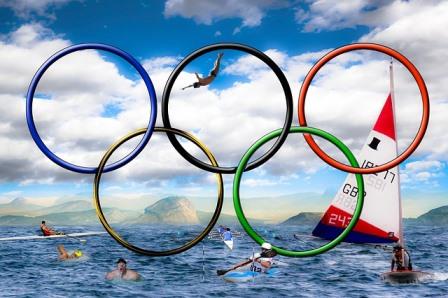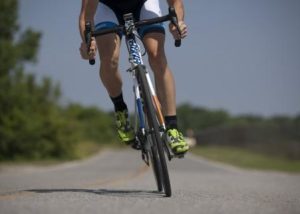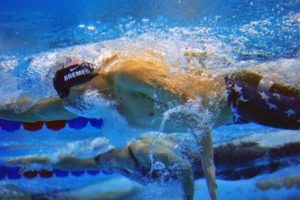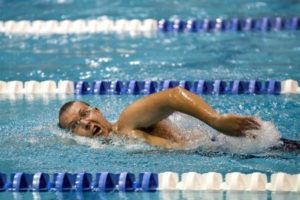- Calls to this hotline are currently being directed to Within Health, Fay or Eating Disorder Solutions
- Representatives are standing by 24/7 to help answer your questions
- All calls are confidential and HIPAA compliant
- There is no obligation or cost to call
- Eating Disorder Hope does not receive any commissions or fees dependent upon which provider you select
- Additional treatment providers are located on our directory or samhsa.gov
Inside the Summer Olympics: A Cyclist’s Battle with Anorexia

Contributor: Courtney Howard, B.A., Executive Assistant at Eating Disorder Hope and Addiction Hope
The 2016 Rio Olympics are in full swing. While this is certainly a time to celebrate elite athletes from all over the world, it is also an opportunity to address the high prevalence of eating disorders among this population.
Mara Abbott, a professional cyclist based out of Boulder, Colorado, competed in the women’s road race last weekend in Rio. The race proved heartbreaking as she was passed by three cyclists in the final 150 meters and came short of an Olympic medal. Abbott’s resilience in her cycling career is paralleled in her ongoing battle with anorexia nervosa.
Mara Abbott’s Story
 Ever since Abbott turned pro in 2007, she struggled with the lack of attention that is paid to women’s cycling compared to men’s cycling. Taking odd jobs to make ends meet, she has been working at a farmer’s market in Boulder to supplement her cycling income and pay for her Olympic trip to Rio. Aside from financial aspects, the general lack of attention given to women’s cycling has made Abbott struggle with feelings of low self-worth.
Ever since Abbott turned pro in 2007, she struggled with the lack of attention that is paid to women’s cycling compared to men’s cycling. Taking odd jobs to make ends meet, she has been working at a farmer’s market in Boulder to supplement her cycling income and pay for her Olympic trip to Rio. Aside from financial aspects, the general lack of attention given to women’s cycling has made Abbott struggle with feelings of low self-worth.
Living in Europe while cycling for an Italian pro team, Abbott felt intense pressure from her community and her demons only intensified. Soon, she questioned whether she wanted to continue with her cycling career, and felt it would be easier to disappear than address the issues she was facing. This triggered her anorexia nervosa, as she heavily restricted and began to disappear both physically and mentally.
Abbott’s intense food restriction hurt her cycling performance, but that did not bother her at the time. As she explained in the July 2013 issue of Velo Magazine, “The thinner I got, the weaker I got. I knew I didn’t mean to be thinner, but frankly my goal was not to race stronger, my goal was to race poorly so the ‘bike world’ would just leave me alone, and let me leave.”
Ultimately, Abbott did make the decision to quit cycling in 2011. She was able to start the recovery process but is still fighting her eating disorder.
Eating Disorders in Endurance Sports
 Patterns of disordered eating are common among athletes, including those in endurance sports, such as cycling, swimming, or rowing. According to one of the first studies on eating disorders within the athletic community [1], based out of Norway, athletes are significantly more likely to struggle with eating disorders than non-athletes, particularly those who participate in sports that put an emphasis on leanness or a specific body type.
Patterns of disordered eating are common among athletes, including those in endurance sports, such as cycling, swimming, or rowing. According to one of the first studies on eating disorders within the athletic community [1], based out of Norway, athletes are significantly more likely to struggle with eating disorders than non-athletes, particularly those who participate in sports that put an emphasis on leanness or a specific body type.
Though eating disorders in primarily aesthetic sports, such as gymnastics or figure skating, are often highlighted in these discussions, it is important to note the prevalence of eating disorders in endurance sports. The high emphasis put on “healthy” eating during training can lead to a disordered relationship with food, not to mention the extreme demands these sports have on both mind and body.
A common misconception about eating disorders is that they are just about losing weight and trying to be thin. As Abbott explained to Helen Pidd of The Guardian in the summer of 2016, “It was never about weight for me… For me, the eating disorder was my way out. It was my way of saying, ‘I’m not in control… I can at least perfect what I’m eating and make myself feel that I’m winning with food.’”
This control element of eating disorders is hardly uncommon, but it is interesting that these were the primary components of Abbott’s cycling career that led to her anorexia nervosa. Though she has been actively battling her demons, Abbott has stated that she still gets relief from controlling her food intake.
The Rise of Orthorexia
 Orthorexia is an eating disorder characterized by an obsession with “healthy” or “clean” eating. This is slowly becoming more common among athletes across the country.
Orthorexia is an eating disorder characterized by an obsession with “healthy” or “clean” eating. This is slowly becoming more common among athletes across the country.
A 2012 study [2] found that orthorexia is on the rise among athletes. Disordered food behaviors in athletes are often dismissed. The social acceptability of fasting, cleanses, juicing, and restricting entire food groups has made it easy for eating disorders to hide behind the name of “healthy” living.
Not only do these factors make eating disorders less likely to be diagnosed by professionals and treated, they make some individuals less likely to recognize that they themselves are struggling and have developed an unhealthy relationship with food. This is especially true when disordered behaviors and resulting body types are praised within athletic communities.
Eating disorder awareness among coaches and athletes can help with detection and early intervention for eating disorders in endurance sports. If you are struggling with an eating disorder, remember that recovery is possible and reach out for help today.
Community Discussion – Share your thoughts here!
What can we do to better increase awareness for eating disorders among athletes in endurance sports?
 About the Author: Courtney Howard is the Executive Assistant for Eating Disorder Hope and Addiction Hope. She graduated summa cum laude with a B.A. from San Diego State University, holds a paralegal certificate in Family Law, and is a Certified Domestic Violence Advocate. After obtaining her certification as a life coach, Courtney launched Lionheart Eating Disorder Recovery Coaching in 2015 and continues to be a passionate advocate for awareness and recovery.
About the Author: Courtney Howard is the Executive Assistant for Eating Disorder Hope and Addiction Hope. She graduated summa cum laude with a B.A. from San Diego State University, holds a paralegal certificate in Family Law, and is a Certified Domestic Violence Advocate. After obtaining her certification as a life coach, Courtney launched Lionheart Eating Disorder Recovery Coaching in 2015 and continues to be a passionate advocate for awareness and recovery.
References:
[1]: Sundgot-Borgen J. (1993). “Prevalence of eating disorders in elite female athletes.” Norwegian University of Sport and Physical Education, Oslo. International Journal of Sport Nutrition [1993, 3(1):29-40] [2]: Segura-Garcia, C., et al. (2012). “Orthorexia nervosa: a frequent eating disordered behavior in athletes.” Eat Weight Disord. 2012 Dec;17(4):e226-33. doi: 10.3275/8272.The opinions and views of our guest contributors are shared to provide a broad perspective of eating disorders. These are not necessarily the views of Eating Disorder Hope, but an effort to offer discussion of various issues by different concerned individuals.
We at Eating Disorder Hope understand that eating disorders result from a combination of environmental and genetic factors. If you or a loved one are suffering from an eating disorder, please know that there is hope for you, and seek immediate professional help.
Last Updated & Reviewed By: Jacquelyn Ekern, MS, LPC on August 14, 2016
Published on EatingDisorderHope.com

The EatingDisorderHope.com editorial team comprises experienced writers, editors, and medical reviewers specializing in eating disorders, treatment, and mental and behavioral health.

